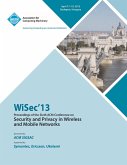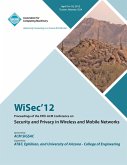Certificate-less cryptography is a variant of ID-based cryptography intended to prevent the key escrow problem. Ordinarily, keys are generated by a certificate authority or a key generation center (KGC) who is given complete power and is implicitly trusted. To prevent a complete breakdown of the system in the case of a compromised KGC, the key generation process is split between the KGC and the user. The KGC first generates a key pair, where the private key is now the partial private key of the system. The remainder of the key is a random value generated by the user, and is never revealed to anyone, not even the KGC. All cryptographic operations by the user are performed by using a complete private key which involves both the KGC's partial key, and the user's random secret value. One disadvantage of this is that the identity information no longer forms the entire public key. Wireless mobile Ad Hoc Networks (MANETs) are an upcoming technology in the field of mobile computing. These networks express severe security problems due to their distinctive uniqueness such as mobility, dynamic topology and lack of central infrastructure support. To execute this system MANET and to construct it practical, we incorporate the idea of Shamir's secret sharing scheme. This system proposes key management and security concerns in mobile ad hoc networks. A mobile ad hoc network is an independent group of mobile devices that interconnect with each other over wireless associations and cooperate in a dispersed way with the purpose of providing the required network functionality in the lack of a stable structure. Certificateless public key cryptography is involved here not simply to eradicate the necessity for certificates, but also to maintain the required properties of identity-based key management methods without the integral key escrow problem.








